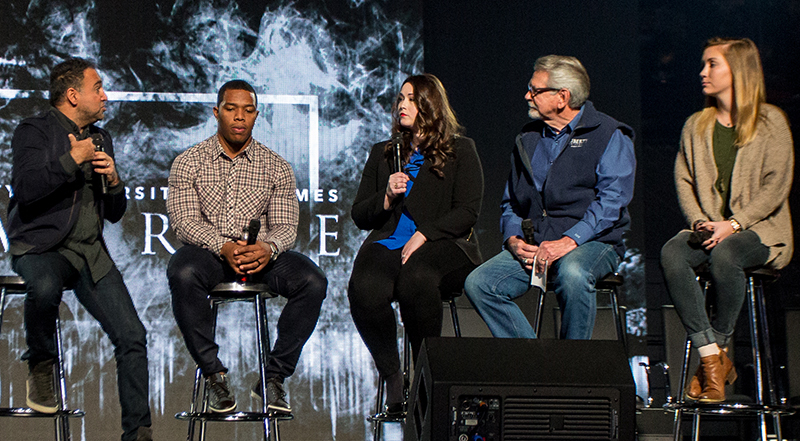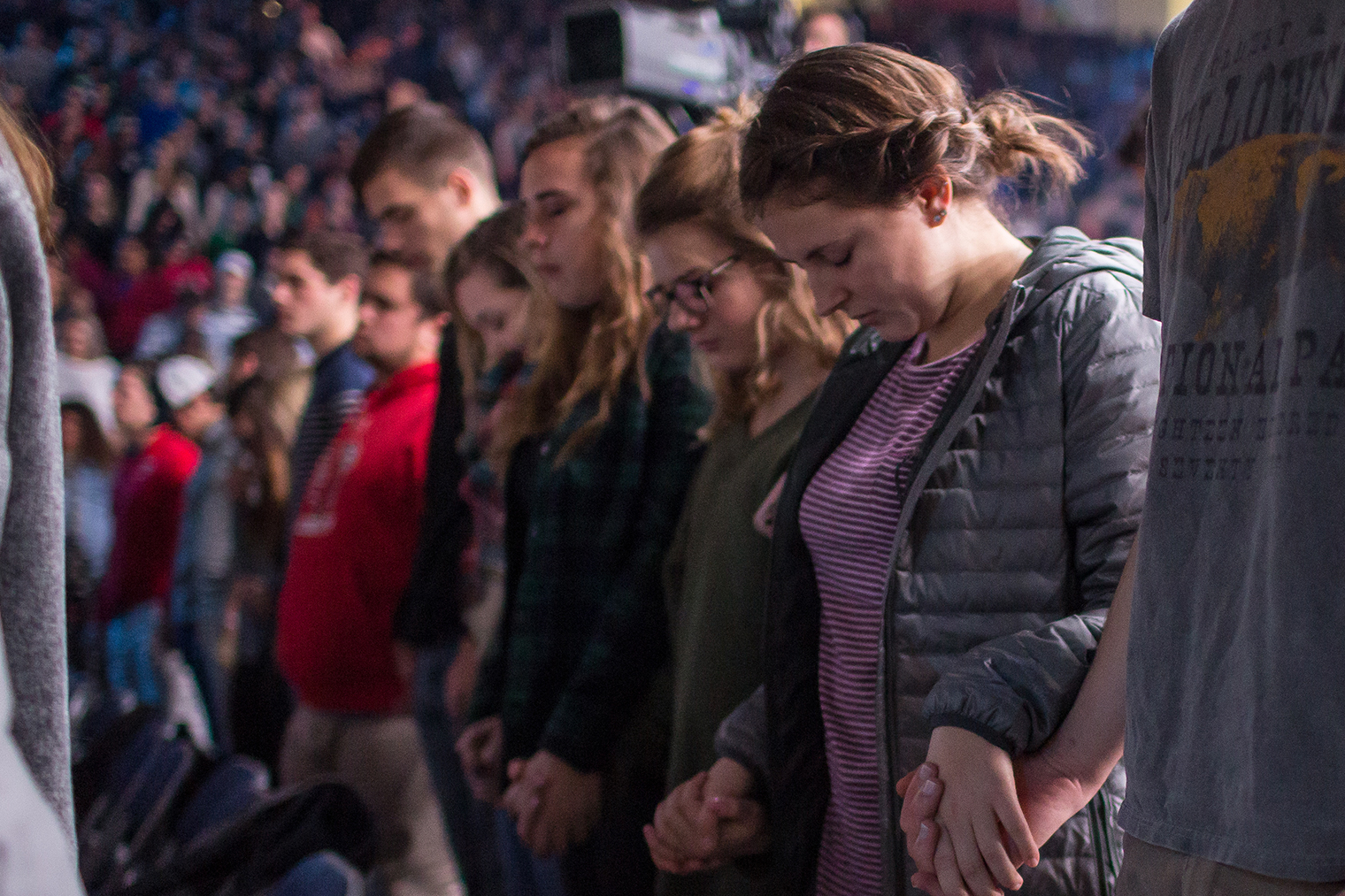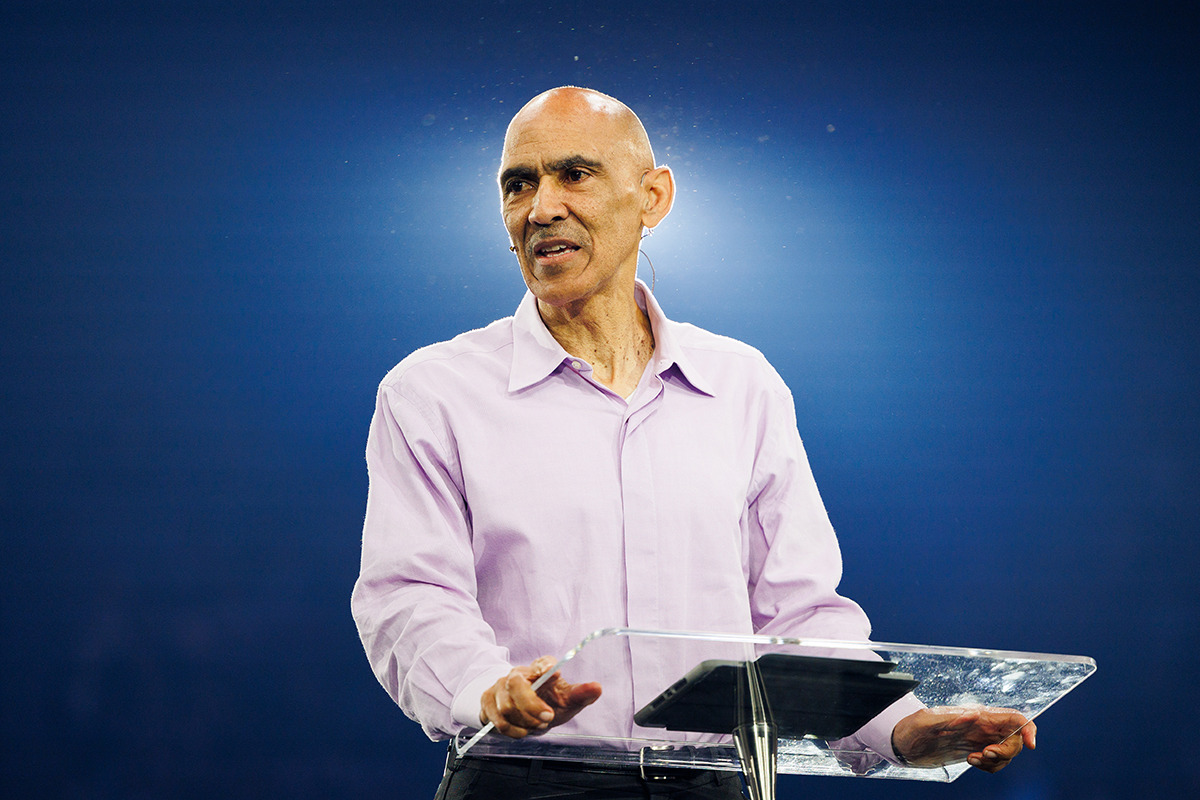Search News Archives
Filter News Articles
Additional Navigation
Liberty hosts conversation on domestic violence with guest Ray Rice
December 6, 2017 : By Office of Communications & Public Engagement
Liberty University held a difficult but important conversation about the reality, extent, pain, and consequences of domestic abuse during Convocation on Wednesday. The event involved a number of voices associated with the issue, from professional mental health counselors to victims, friends of victims, and a former abuser.
Senior Vice President for Spiritual Development David Nasser, who lines up speakers for Convocations, explained that his goal has been to utilize the unique platform to have critical, even if uncomfortable, conversations on key issues so that students are not only aware but better equipped to “be the solution as the people of God.”
Among the speakers Wednesday was Ray Rice, a former NFL running back whose actions — including knocking his then-fiancee unconscious in an elevator, revealed in a 2014 TMZ video — sparked a national conversation on the issue of domestic violence.
“Here is a young man who has made a horrific mistake,” Nasser said. Since then, Rice has sought counseling, quit drinking alcohol, and has married the woman he assaulted. Together, they have two children. “Their walk with God has been the foundation by which he has been able to build out so much of his redemption story,” Nasser added.

Rice spends time as a volunteer coach and speaks to young athletes, sports organizations, and the NFL about assault and, more importantly, about building up character to avoid making the same mistakes he did.
Rice described how ignoring the struggles and issues in one’s life — whether or not they are circumstances they can control — can lead to a life-changing mistake.
“I did too much trying to be the man instead of being a man. You can be the man for a moment, but you can be a man for a lifetime,” Rice said, explaining that he continued to overlook his problems and focus on his football career. “I failed miserably beyond domestic violence. I had it all wrong: I had football, family, and then God. Reverse that order. Anything in life is supposed to be God, family, and then anything else that comes after that. I had that order mixed up for a very long time.”
Nasser said we all can learn a valuable lesson about consequences and forgiveness: “(People) need to hear that they are bigger than one mistake. They might disqualify themselves from a job or certain things because of a mistake, but they never disqualify themselves from the love of Christ, they never disqualify themselves from the power of the Gospel.”
The Convocation was poignant for many students. A video was shown where anonymous students shared their personal stories about living with domestic violence. All sorts of emotions were described, including feelings of powerlessness, bitterness, anger, and even guilt. The students reminded others that they are not alone and encouraged victims to not be afraid, to seek help, to not normalize their situations.
Dr. Nicole DiLella, director of Liberty’s Clinical Mental Health Counseling (M.A.) program, explained that domestic abuse takes more forms than just violence — it can involve verbal assault, belittling, criticizing, fear, intimidation, manipulation, and even financial abuse, which involves wielding control of a person by controlling resources.

“As many forms as domestic violence can take, so can redemption and restoration,” DiLella said, noting that not everyone will or can see their story play out like Rice’s. “It may not look that way, and that is OK. What it may mean is that for you taking that step, being courageous, being bold, and getting that help that you need, that is the path to redemption and restoration in your life and that is very, very powerful; it’s part of breaking the cycle.”
As someone who survived domestic violence in his youth, Dr. Ron Hawkins, Liberty’s provost and chief academic officer as well as the founding dean of the School of Behavioral Sciences, said that people tend to “medicate” in order to grapple with their feelings associated with trauma — be it with substances, relationships, sex, pornography, athletics, or other pursuits — and pleaded with survivors to reach out for the help they need.
“You realize at a point in life something is not working,” Hawkins said, telling students to look to Jesus, God’s Word, and their peers for support. “There is a redemptive story in my life, and in your life, and in Ray’s life, and we celebrate that. But somebody loved us. Somebody told us the truth. We got to a point of brokenness. And we began to go back and look at the resources that were available. So, talk about it. If you have felt that pain that comes from abuse, talk about it with people.”
Nikki Eggeman, a Liberty student and community group leader, explained how she helped one of her peers involved in an abusive relationship. She had “a gut feeling” but, despite the awkwardness, pulled her friend aside.
“I just straight up asked her how her relationship with this person who was abusing her was,” Eggeman said. “It is a hard conversation to have. You don’t want to step over the line. You don’t know if they will receive it or if they are going to shut down, but it is an important conversation to have.”
After Convocation, a junior at Liberty who wished to remain anonymous said the Convocation had “a tough message that needed to be discussed.”
“It is something that is sometimes swept under the carpet,” she said. “I think it was approached very well, very thoroughly — you got opinions from professionals, people who have been exposed but changed their lives around, and you got some anonymous testimonies as well.”
“I was triggered,” a sophomore added. “I am trying to get healing myself. I wasn’t expecting this today, but I appreciated the way they (Liberty) did it.”
At Liberty, students can receive support from an LU Shepherd or seek professional help from Student Counseling Services. Incidents including assault, harassment, and discrimination should be reported through Liberty’s Title IX Office.
Read a Christianity Today story by Liberty professor Karen Swallow Prior on Rice’s visit and the subject of domestic abuse.


